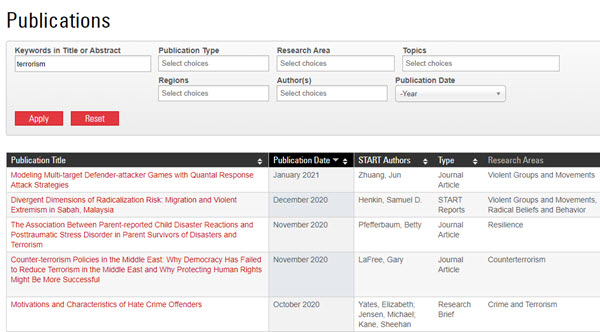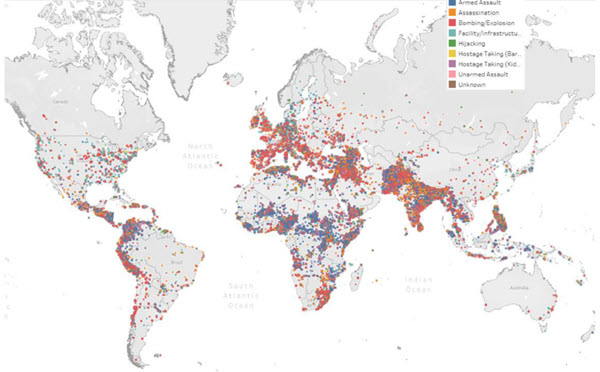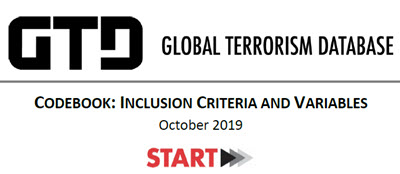The Global Terrorism Database (GTD)™ is a comprehensive, unclassified database providing information on terrorist attacks across the globe. The database is distributed through the National Consortium for the Study of Terrorism and Responses to Terrorism (START). The objective behind maintaining and releasing the database is to help improve our understanding of terrorist violence in hopes that it can be controlled and ultimately defeated.
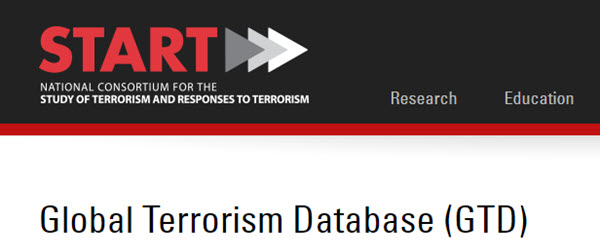
The GTD reports on over 200,000 international and US domestic terrorist attacks that have occurred in the past 50 years, with coverage beginning in 1970. The database provides details on a standard set of dimensions of each attack which supports comparative data at a point in time as well as trends that have occured over time. Research and reports extracted from the GTD help familiarize various stakeholders (e.g., policymakers, scholars, and journalists) with patterns of terrorist activity. The GTD defines terrorist attacks as: "The threatened or actual use of illegal force and violence by a non-state actor to attain a political, economic, religious, or social goal through fear, coercion, or intimidation."
The data are maintained through a continuous process with updates made available to the public on an annual basis. The data collection and data definitions are documented in the GGTD Codebook available for download on the START website. The database includes over 100 structured variables including each attack’s location, the tactics and weapons used by terrorists, the intended targets, the perpetrators, and the outcomes including casualties and consequences. In addition to structured variables, the GTD contains unstructured variables providing additional insights through summary descriptions of the attacks, detailed information on the weapons, motivation of the attackers, and estimates of property damage.
The GTD database is compiled by monitoring and mining unclassified media articles. The data are compiled by a multi-disciplinary team of University of Maryland faculty members. Using a combination of automated and human workflows, the data are scraped from over two million daily media reports. Automated processes (e.g, boolean filters, natural language processing, and machine learning) are used to process the articles. The resultant set are fed through machine-assisted workflows with the relevant output reviewed by a team of research analysts and ultimately fed to the database.
Start created a set of learning videos to explain the GTD, as well as to help educate users to how it can be analyzed to advance understanding of terrorism.
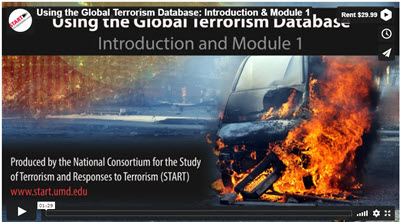
To help further its mission to advance scientific analysis of terrorism, counterterrorism and community resilience, START compiles and disseminates studies and datasets to create objective baselines for future research and decision-making. In addition, START produces interactive knowledge tools to help visualize, integrate, and organize terrorism data.
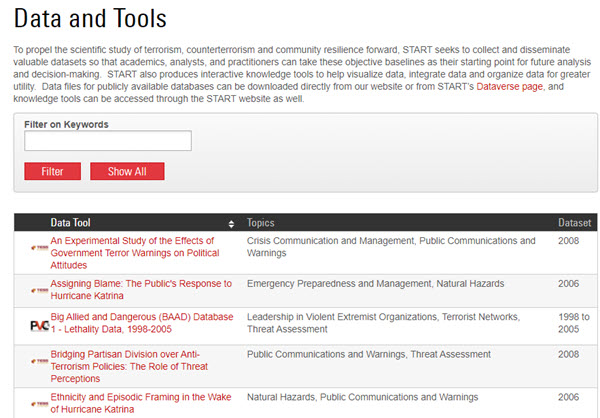
To help advance knowledge and support decision-makers and others interested in terrorism, START has created a searchable collection of relevant publications. The library notes the authors, publication date, type of article, and its classification in its typology of research. By clicking on a title, users are routed to an abstract and references for accessing the articles of interest.
